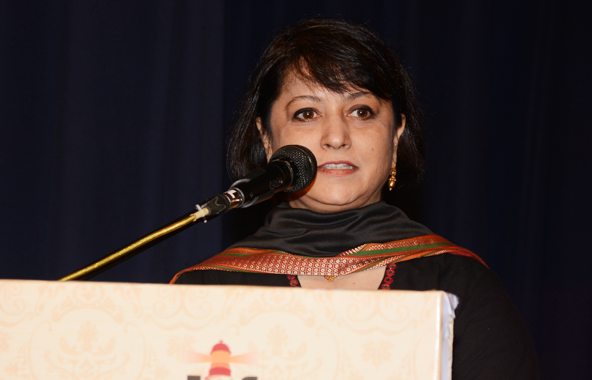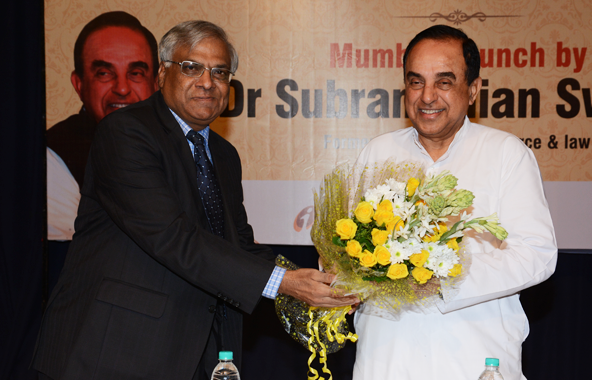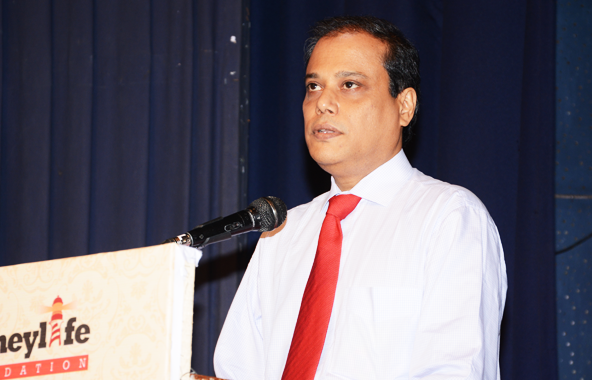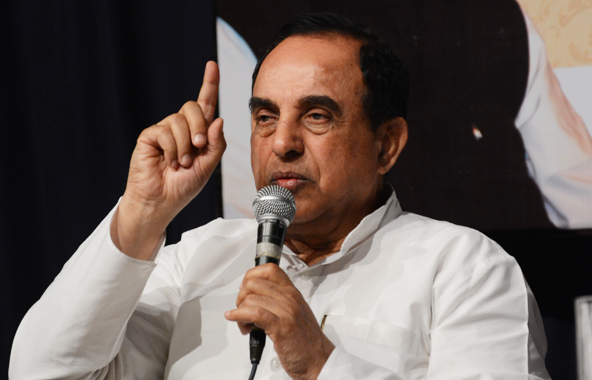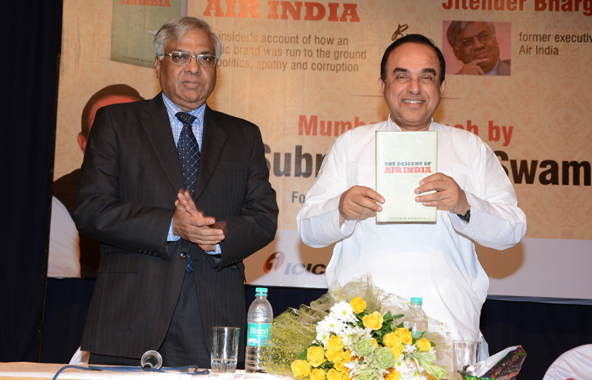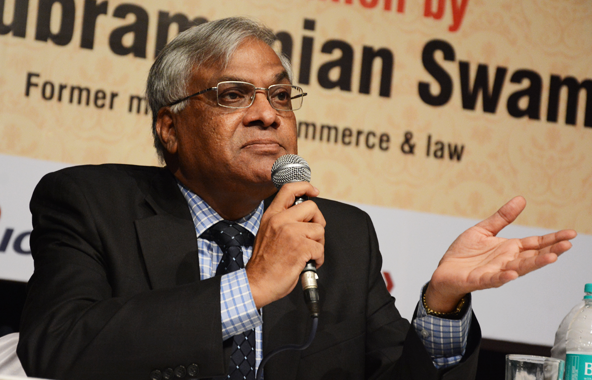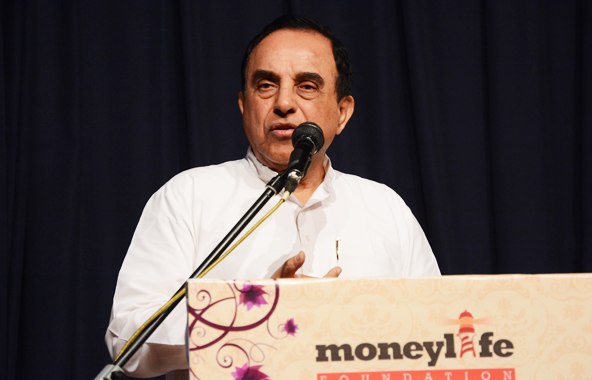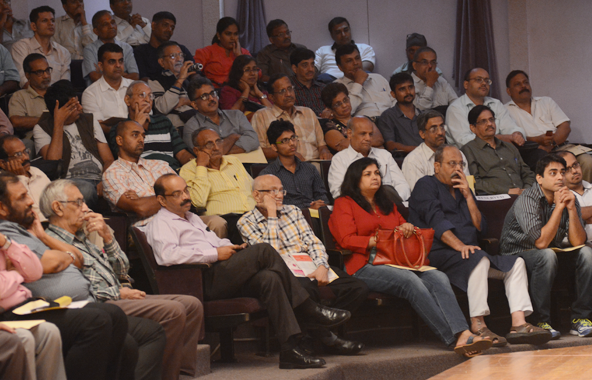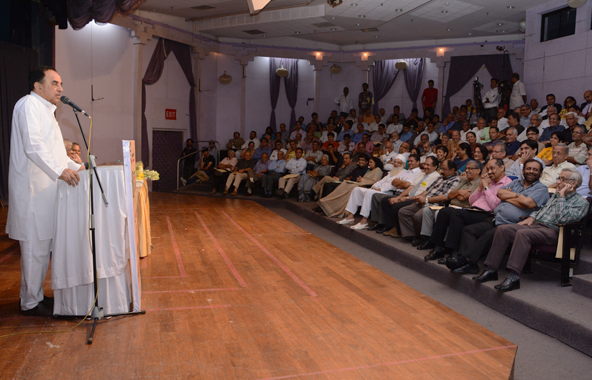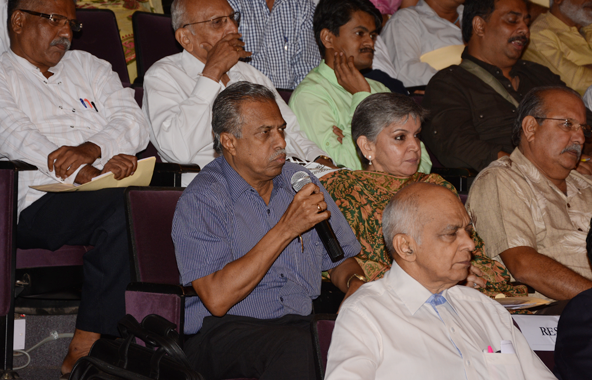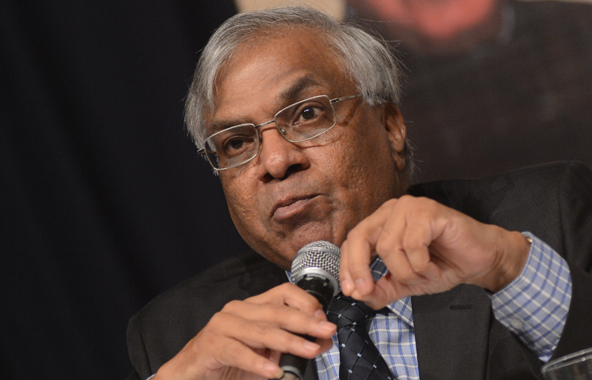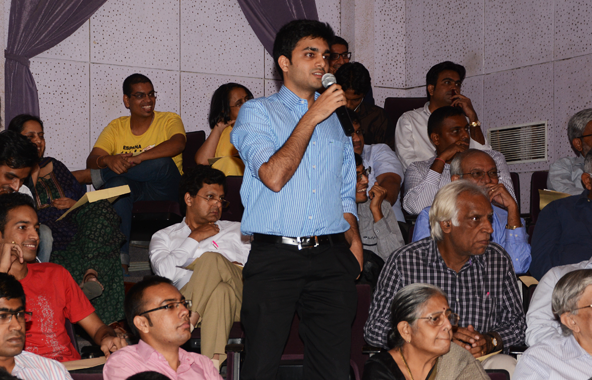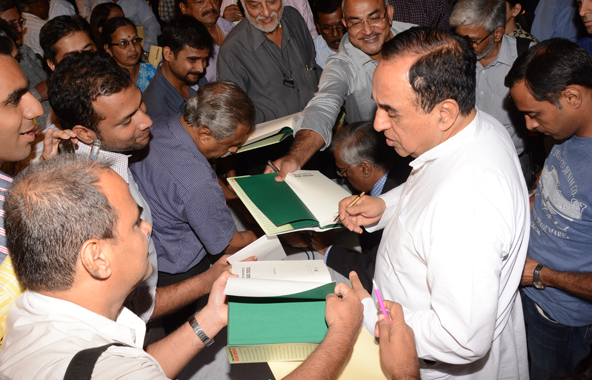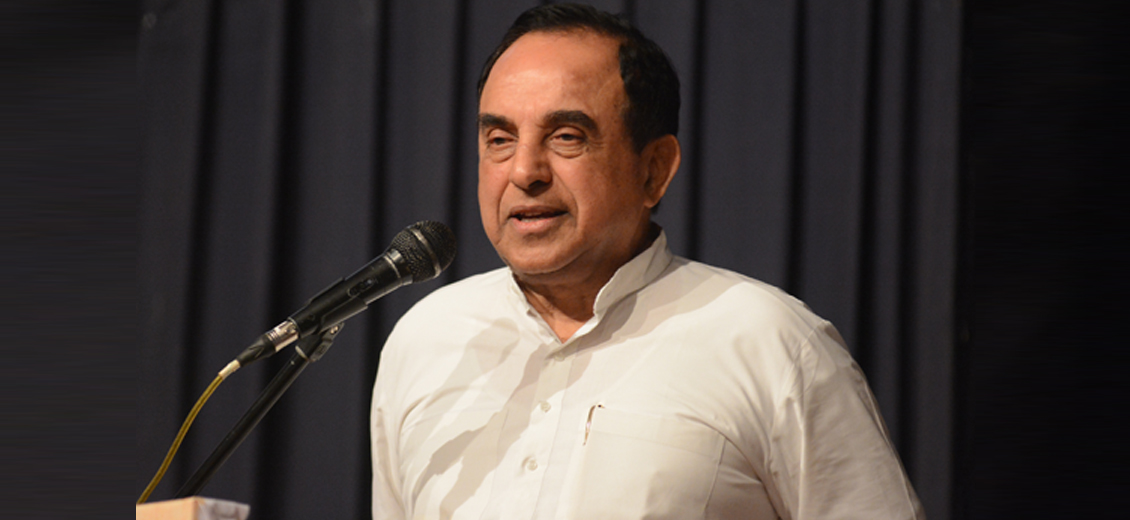
At an exclusive event Dr Subramanian Swamy, former minister of commerce and law launched the book—The Descent of Air India authored by Jitender Bhargava, a former executive director of Air India. Having spent more than two decades with Air India, Mr Bhargava knows the issues and problems of the airline and the aviation industry better than most. He, along with Dr Swamy, who in the past has raised questions over the valuation of Jet Airways by Etihad, examines the scenario of the Indianaviation industry and the way forward.
Dr Swamy, who spoke at Moneylife Foundation’s second anniversary event on the 2G scam and its implications, spoke today on the “Turbulence in the Indian Aviation Industry”. A few months back Dr Swamy raised several questions on the ownership and effective control of Jet Airways post its deal with Abu Dhabi-based Etihad Airlines and on the security concerns related with the deal. In a letter sent to Prime Minister Manmohan Singh, the former minister of commerce and law had requested to adequately scrutinize the proposal between Jet and Etihad before granting the approval.
The deal between Naresh Goyal-led Jet Airways and Etihad Airways, the national airline of the United Arab Emirates (UAE), and the signing of the bilateral between India and Abu Dhabi comprises chain of events taking place one after another. The” flow of events makes one wonder whether these incidents were mere coincidence or part of collusion, said Mr Swamy. Dr Swamy mentioned that the deal was against public interest as there has been squandering of air space. He claimed that the deal was cleared against the advice of the Parliament Select Committee and other advisory bodies. Dr Swamy also said that even the CAG has found that there has been reckless allocation of air space to foreign airlines.
On the decline of Air India Mr Swany highlighted a few reasons: bilateral agreements, all profitable routes of the airlines were shutdown and made available to other airlines. He also mentioned that the airline bought aeroplanes that were probably overpriced and recently they has sold the brand new planes as junk to Ethiad at one-third the price.
Dr Swamy has consistently been ahead of his time with his views and unafraid to express them lashed out on the sanction of the Ethiad-Jet deal. He said, “All scrutiny and investigation in the past have for one vested reason or another, been suppressed and never acted upon putting Indian security gravely at risk. The allegations of serious underworld connections from the UAE continue to haunt Jet’s ownership and need to be pre-examined by the Intelligence Bureau, Department of Revenue Intelligence and other Intelligence services.”
Mr Bhargava spoke to the audience on what motivated him to write the book. “It was once an iconic brand and today it is grasping for breath,” lamented Mr Bhargava. He spoke about his book which chronicles the decline of Air India from the iconic status it once commanded to its current state over the years. What caused the airline to lose its premier status, when and why did things go wrong, and mainly, who was responsible? In his book, Mr Bhargava details all the people and events that led to Air India’s downfall. Mr Bhargava gives an insider’s account of how an iconic brand was run to the ground by politics, apathy and corruption.
“Air India under the legendary JRD Tata was among the best airlines in the world-today it is irrelevant. Worse we aren’t even sure where Indian aviation is headed,” said Ms Sucheta Dalal, founder, Moneylife Foundation. “The privatisation of aviation, the licensing of new entrants has been marked with the most brazen capriciousness, corruption and political interference,” she said.
Mr Bhargava was the executive director of the airlines till January 2010 mentioned that every decision was being taken by the government as Air India never had a culture of speaking up. Those who voiced their opinion were asked to leave. Instead of implementing decisions that should have been taken, the airline was bleeding because of decisions that should not have been taken. Impractical expansion plans and thoughtless use of the airline’s resources contributed to the company’s financial collapse.
Mr Bhargava brings the force of an insiders’ perspective and the eye of one who watched the decline of Air India’s fortunes almost from the very beginning. He asked some searching questions. Mr Bhargava has written the way he saw it, without embellishment.
In his book Mr Bhargava highlighted that when India won the T20 cricket world championship, Praful Patel, former aviation minister who oversaw the airlines for some seven years, awarded the entire Indian Team and their families free tickets on Air India for five years. The loss making airlines was also made to spend Rs3.5 crore on advertisements to celebrate the T20 win. A media house, for its annual summit, was given a Rs30 lakh verbal commitment of free tickets from Air India, by Praful Patel, in return for publicity! The oral commitment was honoured since it was made by the minister.


